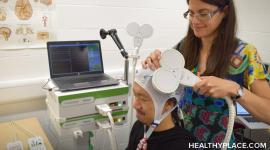The Relational Approach to Counseling (Relational Therapy)

Relational therapy is a form of psychotherapy based on the belief that to thrive emotionally and mentally, we must have stable and fulfilling relationships. Established in the 1980s, this form of therapy helps individuals understand the role of relationships in their lives and how their connections to others shape their daily experiences. It also focuses on past relational skills, and how these might impact present and future relationships. Relational therapists believe that long-term emotional distress and mental illness is partly the result of relational issues.
How Is Relational Therapy Used?
Relational therapy can help people experiencing a range of emotional and mental health problems. It is commonly used to treat those struggling with anxiety, stress or depression. It can also help those experiencing relationship or family issues, workplace challenges, difficulty adjusting to new life situations and problems with intimacy (relational and sex therapy).
The primary goal of relational therapy is to help you – the client—form stable and healthy relationships with others. According to relational theory, this sense of connection can help you build more meaningful and fulfilling attachments in life.
Types of Relational Therapy
Relational therapy is largely based on theory rather than a set of techniques. There are, however, several different branches of relational therapy that can be used to help facilitate the client's therapeutic goals.
These include, but are not limited to:
Relational and sex therapy: Also known as relational therapy for couples, relational sex therapy is a short-term, directive approach that requires couples to spend time together in the presence of their therapist to improve their intimate relationship. Therapeutic suggestions and exercises will also be suggested for couples to try between sessions to help them achieve their desired outcome.
Intensive relational therapy: An intensive treatment option for couples that takes place over ten days. Sessions usually last for two hours and are delivered by a male-female co-therapy team. Couples are encouraged to focus solely on their relationship with no external distractions. This form of therapy aims to help couples connect on a deeper level, both physically and emotionally.
Object-relational therapy: An individualized approach that focuses on relationships being crucial to personality development. Here, the main focus is the self and self-objects. Object relations therapy aims to help you uncover early memories (or ‘mental images') that may help you understand and manage present relationship difficulties.
Relational cultural therapy: A form of relational therapy built on the premise that human beings grow through and toward connection. Relational cultural therapy views social isolation as a major source of emotional and mental suffering, on both a personal and cultural level. The goal is to help you form healthy relationships outside through analyzing your positive and negative relational images, as well as experiences of past relationships that may influence your present and future.
Benefits and Limitations of Relational Therapy
Relational therapy offers many benefits for people who struggle to maintain healthy relationships with others, as well as those experiencing anxiety, depression or loneliness. It has also shown some effectiveness in treating body dysmorphia and other eating disorders.
Many of us may believe that we can form meaningful connections to others. However, more often than not, there are experiences from our past that act as barriers to true relational health.
- Benefits of relational therapy include:
- Reduces anxiety in social situations and at work
- Improves psychological wellbeing
- Helps you build more trusting, satisfying relationships with others
- Increases understanding of your past and present relationships
- Brings social and cultural factors to light
- Increase mental and emotional energy
- Boosts self-esteem
One of the main criticisms of relational therapy is that it is not considered suitable for people with avoidant personality types. It is also mostly dependent on a fulfilling and healthy relationship between client and therapist, so relational therapy may not be as effective for those who are resistant to treatment. With the right therapist, however, relational therapy can be beneficial in the treatment of a whole range of emotional and relational issues.
APA Reference
Smith, E.
(2019, September 26). The Relational Approach to Counseling (Relational Therapy), HealthyPlace. Retrieved
on 2026, March 5 from https://www.healthyplace.com/other-info/mental-illness-overview/the-relational-approach-to-counseling-relational-therapy



